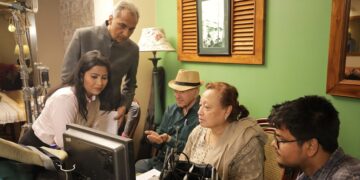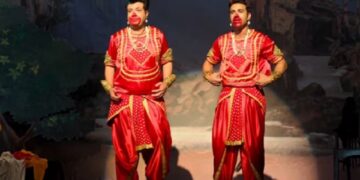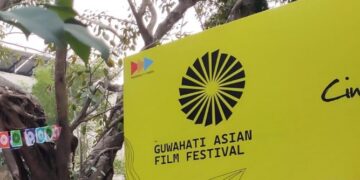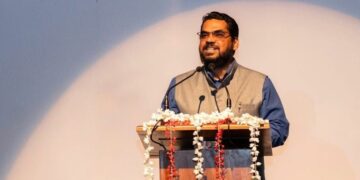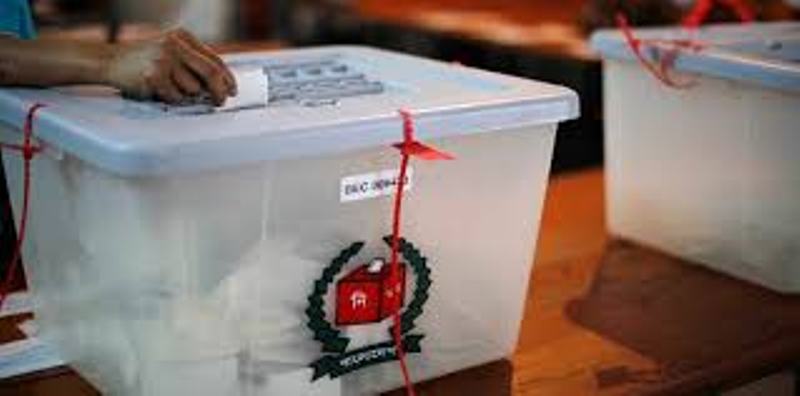It is an odd situation in Bangladesh at this point. Political parties that are happy that the Awami League is out of power, indeed has been clamped with a ban, are now indulging in the pretence that everything is working well, that the elections Muhammad Yunus has been promising for February next year will actually come to pass.
One understands why the Bangladesh Nationalist Party (BNP) is keen on the elections. It has been out of power since 2006 and is certainly desperate about securing its future.
A sign of it is the initial list of candidates for Parliament that it announced the other day in Dhaka. Altogether 237 party figures have been handed nominations for the elections.
And yet questions have been flying back and forth about the denial of nominations to such significant party figures as Rumeen Farhana and Ruhul Kabir Rizvi.
These two leading lights of the party have, beginning with the Awami League era, waged a relentless struggle for the BNP.
To be sure, they might in the end be given nominations, but that they missed being on the preliminary list of candidates has left political quarters rather baffled.
Rumeen Farhana, a barrister, has, of course, lately been waging a lone battle in defence of the principles of the 1971 War of Liberation, a stand which not many in the BNP have been shown to demonstrate over the years.
There are indeed freedom fighters in the inner circles of the party, but they have appeared to be caught between demonstrating loyalty to the organisation and upholding the principles of the national freedom struggle.
Be that as it may, the question now is one of why, even before a clear roadmap to the elections has come from the interim regime, the BNP leadership has come forward with its nominees’ list.
Could it be that it is a measure to keep up the pressure on Yunus and his regime, indeed, hold them to their promise of holding the elections without making any attempt to back away from the pledge?
Or it could be that having fallen behind its erstwhile junior partner, the Jamaat-e-Islami in influence, the BNP is now clearly cognisant of its need to regain what it has lost in the last fifteen months.
While the Jamaat has quietly been working to expand its hold on the country’s public universities, banks and the civil administration, the BNP has often been embarrassed by the activities of its young followers, who have been accused of indulging in extortion and overall lawlessness in the country.
For its part, the Jamaat is keen about a referendum being held on the state of politics before the elections are held.
Its desire for a system of proportional representation to determine the nature of Parliament in the future has found few takers so far.
The BNP’s candidates list has spurred some smaller parties, especially an outfit known as Ganashanghati, into revealing the names of their own candidates.
As for the king’s party, the NCP, a denial has come from it to the effect that it has not sought any seats from the BNP as an electoral arrangement.
In other words, it did not ask the BNP to leave some seats aside for it. And so this election fever, if it is at all a fever, goes on. Any observation of conditions in Bangladesh today would lull those not conversant with the ground realities into being duped into the false belief that the country is on its way to recreating democracy.
So what is the truth? At this stage in national politics, informed quarters — and they include academics, journalists, bureaucrats and the general mass of citizens — have little reason to think that an election will at all take place.
For one thing, the state of anarchy unleashed in August last year has not been rolled back. For another, the strong belief holds that on the watch of the Yunus regime, a free, fair, inclusive and therefore credible election is a pipe dream because of the partisan manner in which it has tried running the show in the last fifteen months.
More importantly, sentiments across the country increasingly point to a growth of support for the Awami League, for it to be part of the electoral process.
Sheikh Hasina’s recent interviews with some western media outlets have re-energised the Awami League, a reality the Yunus dispensation certainly cannot ignore.
These interviews have continued to be the talk of the town, if one may choose to refer to the emergent situation as such.
But what if some sort of hurried election does take place, with the BNP and Jamaat taking part in it? There have been instances earlier of such elections indeed taking place, but those elections lacked credibility in their totality.
General Ershad, Bangladesh’s second military ruler, organised parliamentary elections in 1988.
Voting booths around the country remained without voters. In February 1996, the ruling BNP organised an election which the Awami League and other parties boycotted.
Again, in an earlier period, in 1977 to be exact, General Ziaur Rahman presided over a referendum that the electorate overwhelmingly stayed away from.
The point? With Yunus around, the BNP, Jamaat and other anti-Awami League parties may join the elections in the mistaken belief that constitutional government will be restored through such an exercise of the vote.
The danger, though, is that such a sham of an electoral experiment will immediately push the country down the road to a newer disaster, a condition which will then need to be arrested through organising proper elections under the watch of a caretaker regime that will have replaced the Yunus outfit.
The darkness looming over Bangladesh will not lift till substantive measures are taken to free the country of the stranglehold it has been in since the unconstitutional removal of the Awami League government in August 2024.
ALSO READ: Tremors across Bangladesh’s political landscape
Point to be noted: in all this conversation on elections, the dialogue keeps turning to the matter of the Awami League.
It will be folly to expect the party of Bangladesh’s liberation to walk away into the sunset. Under pressure, it has always come back roaring.


